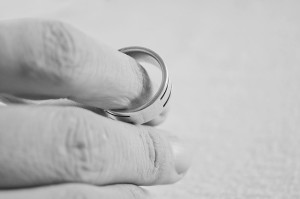
Sexual addiction or compulsive sexual behavior is a serious complication that can result in detrimental consequences, not only to the sufferer but to those closest to them.
This is perhaps most observed in a marriage or relationship between to committed individuals.
A individual who is struggling with a sexual addiction will likely continue to act out in behaviors associated with this disorder, even though they are aware of the damage that is being done to themselves and their loved ones.
Sexual dependencies and compulsive sexual acts develop from a host of complex factors and can ultimately lead to a myriad of marital problems.
Some of the common behaviors associated with sexual addiction includes external affairs, extensive use of pornography, compulsive masturbation and more.
These types of behaviors connected with sexual addiction can result in many relationship issues, such as lost of trust, loss of physical and/or emotional intimacy with a spouse, increased financial burdens, feelings of inadequacy and self-esteem problems.
Only Option - Divorce?
For many couples going through a sexual addiction, divorce is the only option for ending the pain and suffering that is often endured through a marriage.
 While divorce may seem like the best option, it is also a very difficult and complex process to go through for all parties involved.
While divorce may seem like the best option, it is also a very difficult and complex process to go through for all parties involved.
There will likely be legal involvement and many complex issues to sort through, including custody of children, separation of finances and assets, and more.
Going through a divorce in itself can be incredibly wearisome and overwhelming, and it is essential to have adequate support throughout this entire process.
If you or your loved one is going through a divorce as a result of sexual addiction, consider enlisting the help and support of professionals, such as a marriage family therapist or licensed professional counselor.
Processing your emotions and feelings through this journey will be critical for your own sanity, healing and wellness. You may also consider joining a support group as a way of networking with other individuals who may be going through a similar situation.
Knowing that you are not alone through this process can be helpful in getting through the many devastating results that come along with divorce.

About the Author: Crystal is a Masters-level Registered Dietitian Nutritionist (RDN) with a specialty focus in eating disorders, maternal/child health and wellness, and intuitive eating. Combining clinical experience with a love of social media and writing, Crystal serves as the Special Projects Coordinator for Eating Disorder Hope/Addiction Hope, where her passion to help others find recovery and healing is integrated into each part of her work.
As a Certified Intuitive Eating Counselor, Crystal has dedicated her career to helping others establish a healthy relationship with food and body through her work with EDH/AH and nutrition private practice.
The opinions and views of our guest contributors are shared to provide a broad perspective of addictions. These are not necessarily the views of Addiction Hope, but an effort to offer discussion of various issues by different concerned individuals.
We at Addiction Hope understand that addictions result from a combination of environmental and genetic factors. If you or a loved one are suffering from an addiction, please know that there is hope for you, and seek immediate professional help.
Updated & Reviewed By: Jacquelyn Ekern, MS, LPC on January 28, 2016
Published on AddictionHope.com
